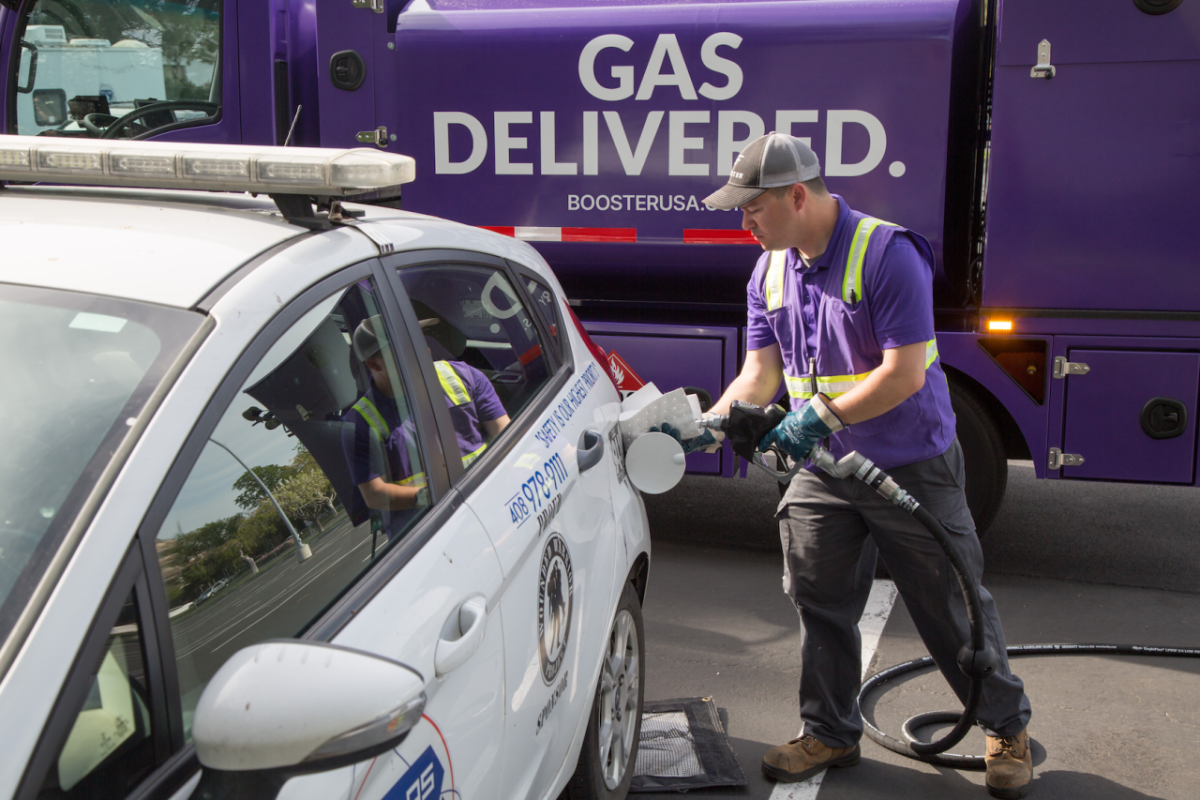Booster’s Mobile Fuel Delivery Lowers Last-Mile Fleet Emissions

In the new age of “all things delivered” and expedited service, it can be easy to lose sight of the environmental impact of last-mile delivery. But as the market grows rapidly and related emissions skyrocket, mobile fueling provides a key solution, explains Frank Mycroft, CEO and founder of Booster®, in a recent article for FreightWaves magazine.
Pointing out that demand for urban last-mile delivery is estimated to grow another 78% by 2030, Mycroft explains how the culture of convenience prioritizes speed and ease over sustainability while exacerbating emissions in the transportation industry. The rise in demand for faster and more frequent deliveries has resulted in increased use of last-mile delivery vehicles, leading to higher greenhouse gas emissions overall.
As public desire for last-mile delivery is unlikely to subside, mobile fueling, the use of alternative fuels, and increased data analytics may offer solutions to fleets as they work to keep emissions at bay. Booster's mobile fuel delivery service provides customers with a convenient and efficient way to fuel their vehicles without going to a gas station, which reduces emissions and improves air quality by lowering the number of vehicles on the road and amount of fuel burned on fueling errands.
In the mobile fueling model, a range of traditional and alternative fuels are delivered directly to the fleet vehicles in their off-hours, so each vehicle begins the day with a full tank, ready to go. For the average fleet vehicle, each off-route gas station trip takes 2.2 miles, adding extraneous emissions to a last-mile fleet’s output. In fact, with Booster’s mobile service, fleets can save an average of 525 lbs of CO2 emissions per vehicle annually.
While mobile fueling alone can help stymie emissions, combining various solutions can unlock even more reductions. Booster’s mobile fuel delivery service provides easy access to renewable fuels, which are not commonly available at gas stations. These fuels can significantly lower emissions even in internal combustion engine vehicles.
For the sustainability movement to positively impact last-mile fleets, sustainable and decarbonized solutions must be simple and practical to implement into existing operations. As the last-mile delivery market grows, fleet managers can combine mobile fuel delivery, data analytics, and renewable fuels, to work toward a carbon-neutral last-mile delivery market.

